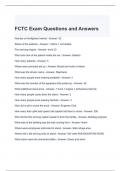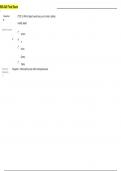College aantekeningen
Brain Damage
- Vak
- Brain damage
- Instelling
- Maastricht University (UM)
In this document you will find all the necessary answers to the learning goals in order to pass your exams. Moreover, pictures accompanying the theory are added.
[Meer zien]







